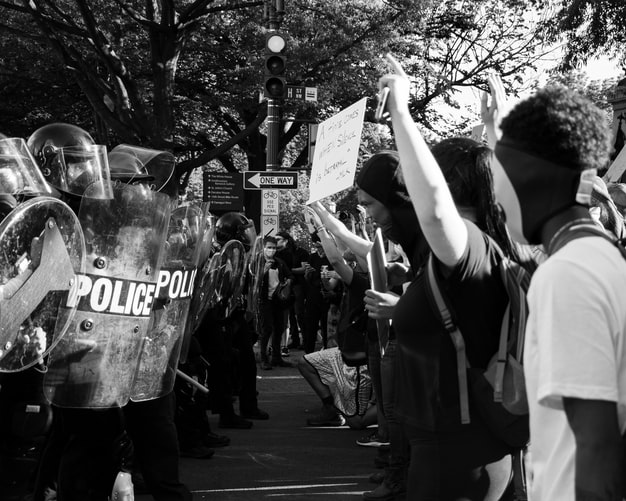The recent Global Refugee Forum saw positive steps towards promoting refugee education, but what are the challenges and implications of doing so?
The celebration of the International Day of Education today on the 24th of January reminds us of education’s vital role in development. It can pave the path for the most vulnerable children to experience better lifelong opportunities. This is why it is significant that the first Global Refugee Forum in December 2019, which the UNHCR hosted, shone the spotlight on the issue of expanding refugees’ access to high quality education.
Placing refugee education on the policy agenda is a sign of progress. 20% of refugees worldwide are unable to attend school, and it is estimated that to fully meet refugee education funding needs, spending per student would need to multiply at least tenfold. Also, education persists in being one of the sectors in humanitarian assistance with the lowest proportion of funding requirements met, with global humanitarian aid failing to meet targets of devoting at least 4% of this aid to education. This suggests a myopic approach to policymaking, which neglects strategic, long-term solutions to tackling refugees’ displacement. Refugees’ education is especially pertinent now, as they spend ten years on average in exile. Such protracted situations demand substantial investment into refugees’ human capital through their education, especially because children in humanitarian crises overwhelmingly desire the chance to go to school. At the Global Refugee Forum, the World Bank, the Global Partnership for Education, and Education Cannot Wait made a joint pledge to enhance coordination, collaboration and financing of efforts to support refugee education. Private sector organisations are also contributing funds, with the Lego Foundation providing a £77 million grant for play-based education for young children in East Africa.
But how much closer will the pledges made at the Global Refugee Forum bring us to improving educational access for refugees? Organisations may have competed to see who could make the most pledges for public relations purposes. Yet pledged money does not comprise any binding agreement and its disbursement could be slow, nor do we know how exactly the funding will be allocated. The leading international organisations which made a joint pledge will publish their plans for operationalising their commitments by mid-2020. However, the precise mechanisms through which UNCHCR will track each of the pledges and how they are used is unclear, raising questions about accountability.
This relates to the critical issue of opening the ‘black box’ of expenditure. This refers to the problem of understanding not only the quantity of expenditure but also how it will be used and translated into policies. UNESCO outlines its goal to use the funding to construct policies based on good practice, with online case studies of such practices across countries. They will also cooperate with member states to strengthen their capacities for including refugees in education.
Yet these strategies are vague and perhaps generate more questions than answers. A potential approach suggested by the 2019 Global Education Monitoring Report published by UNESCO is to engage with multiple stakeholders concerned with both humanitarian and development aid across countries. This will integrate the two areas, because humanitarian aid traditionally focuses on immediate relief such as food security, with only 2% of it devoted to education. Meanwhile, national education plans are limited in that they predict stability and do not generally account for displacement.
Uganda, the country hosting the greatest number of refugees in Africa, provides an excellent example of cutting across the humanitarian-development divide to foster refugees’ inclusion in education. In 2018, they approved an Education Response Plan for Refugees and Host Communities, cutting across the humanitarian and development sectors to move towards attaining the goal of improving learning outcomes for refugees and children from host communities. They are doing this through integrating funds to implement specific policies (such as training teachers), and developing capacities for inspection and educational innovation. Now Uganda has almost equitable school enrolment rates for refugee and ‘host’ primary school children, at 65% and 68% respectively. This is just one instance of a paradigm shift from a minimalist humanitarian focus to a holistic emphasis on bringing sectors together to improve education in a multidimensional manner. With encouragement from the UNCHR and additional funds from the Global Refugee Forum, this model could be translated to other countries, adjusting for variations in local contexts, political institutions and education systems. The fact that this example is drawn from Uganda, a developing country, is important, as 84% of the world’s refugees live in developing economies.
One crucial issue, however, is that any efforts to satisfy the Refugee Forum’s goals for quality education will depend on the political climate in which policies are implemented. Limited political will to support refugees in times of escalating nationalism and (in some countries, cuts to public services), could undermine the extent to which evidence-based policies on contentious issues such as refugee policy are delivered. This is especially worrying considering the lack of political leaders present in the Forum, particularly the heads of government from many advanced economies.
It appears then, that the route to granting refugee children their right to access equal and high-quality education involves technical and political challenges. Nonetheless, its escalation on the migration policy agenda due to the Global Refugee Forum is an essential starting point to attaining educational goals for one of the most marginalised groups in the world.
Photo attribution:
Featured image (homepage): “Young school boys at the Refugee School, Ramallah, Palestine” by Abel Caine is licensed under CC BY 2.0
Note: This article gives the views of the authors, and not the position of the Social Policy Blog, nor of the London School of Economics.





